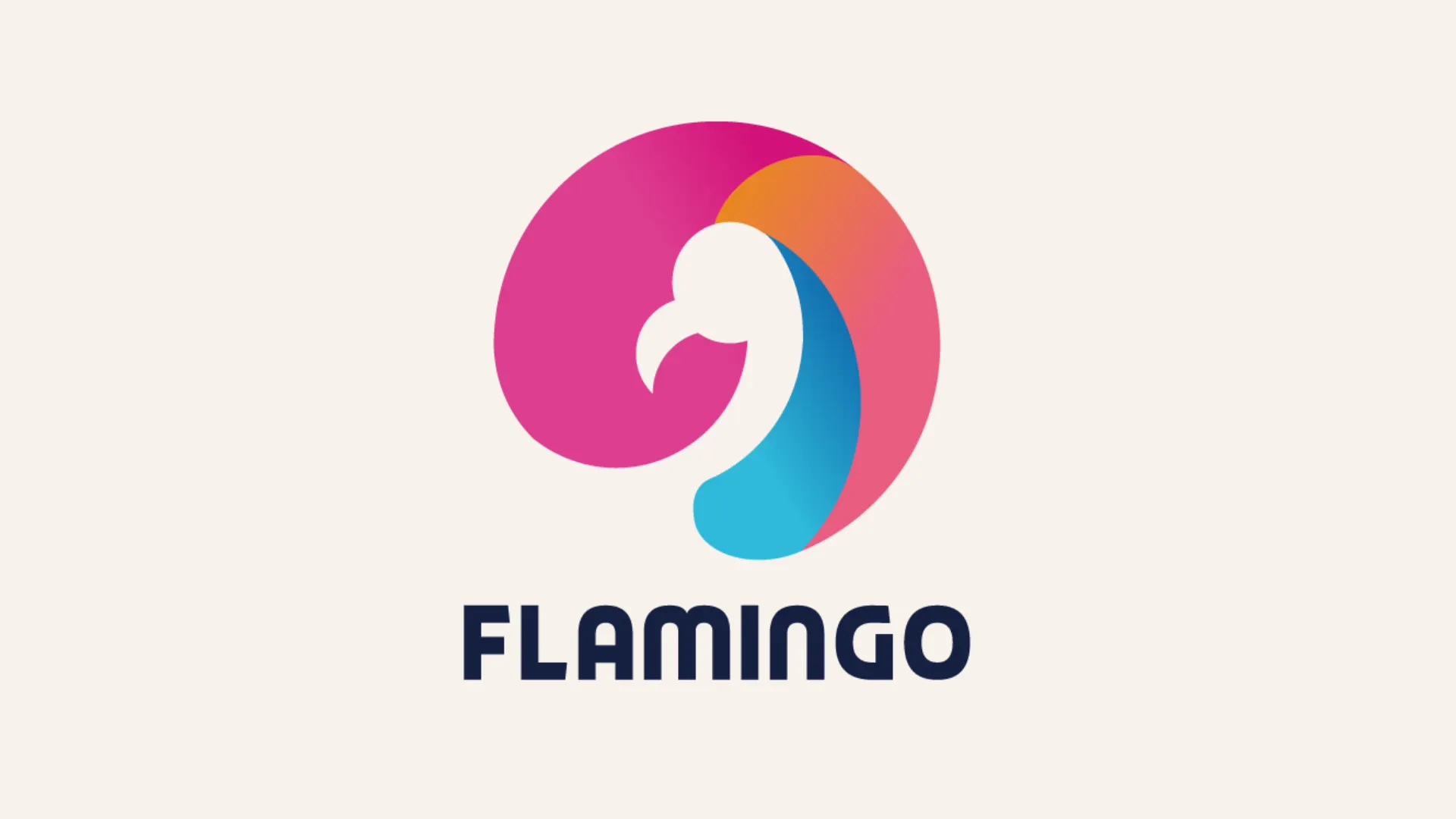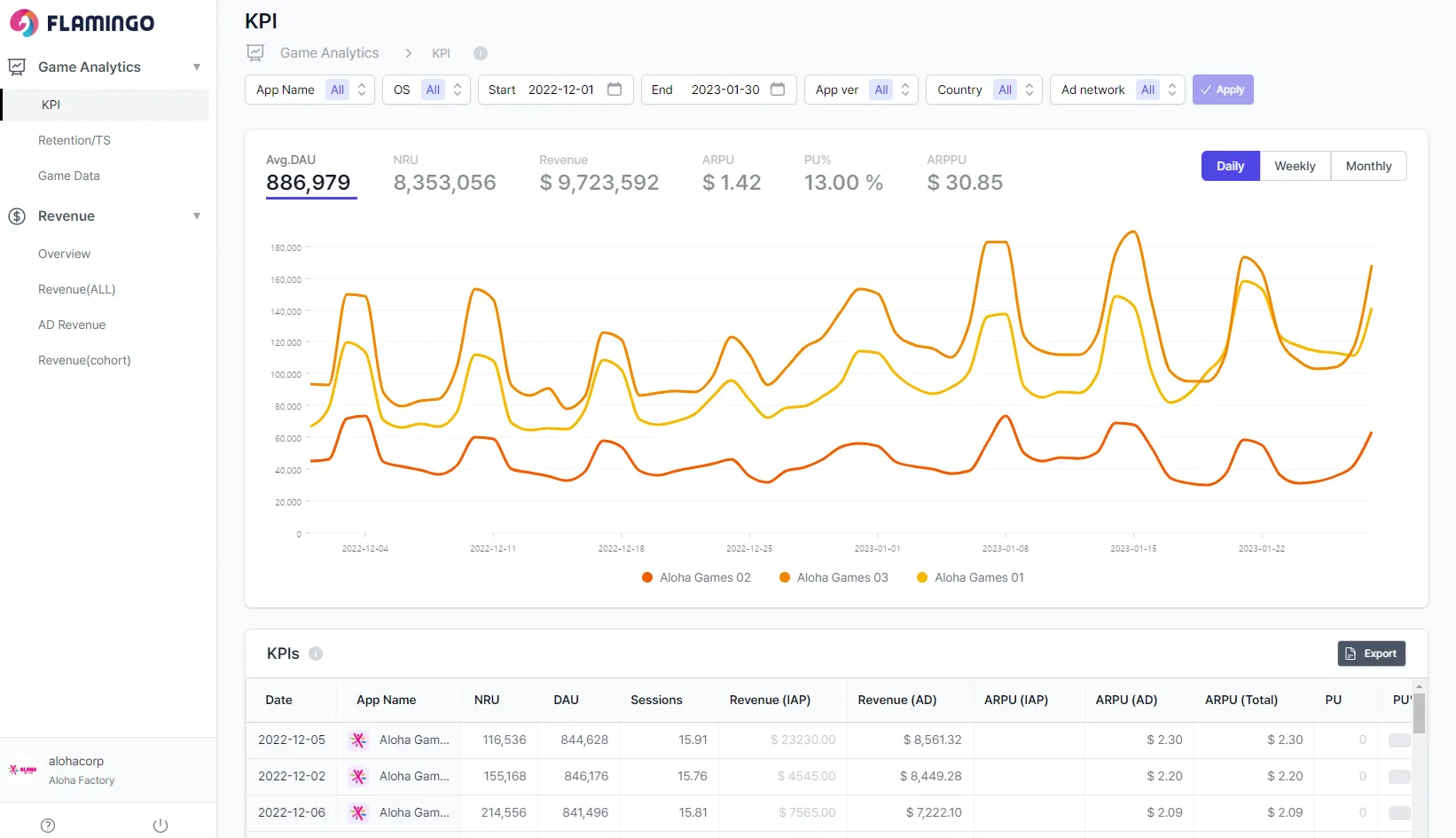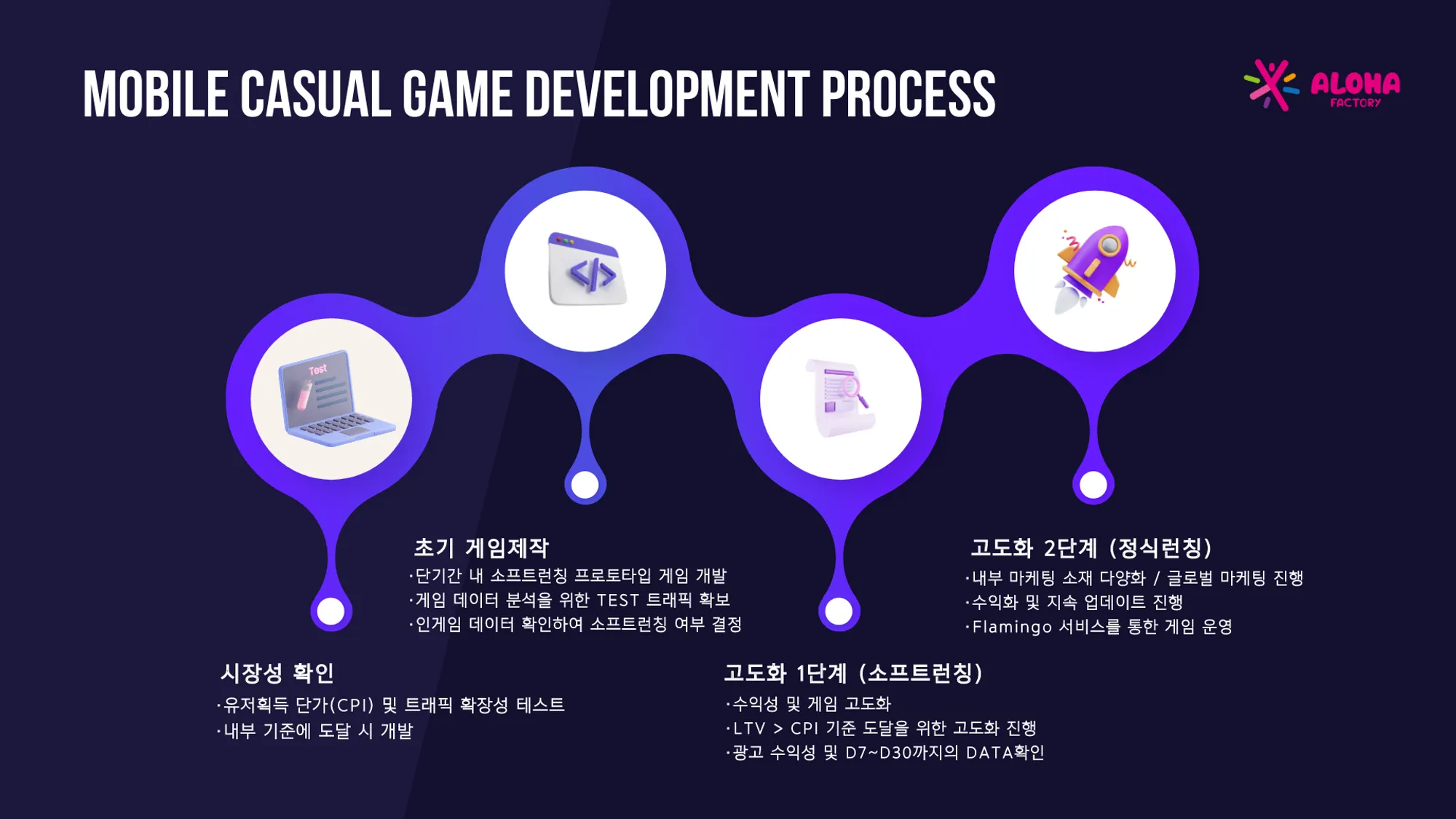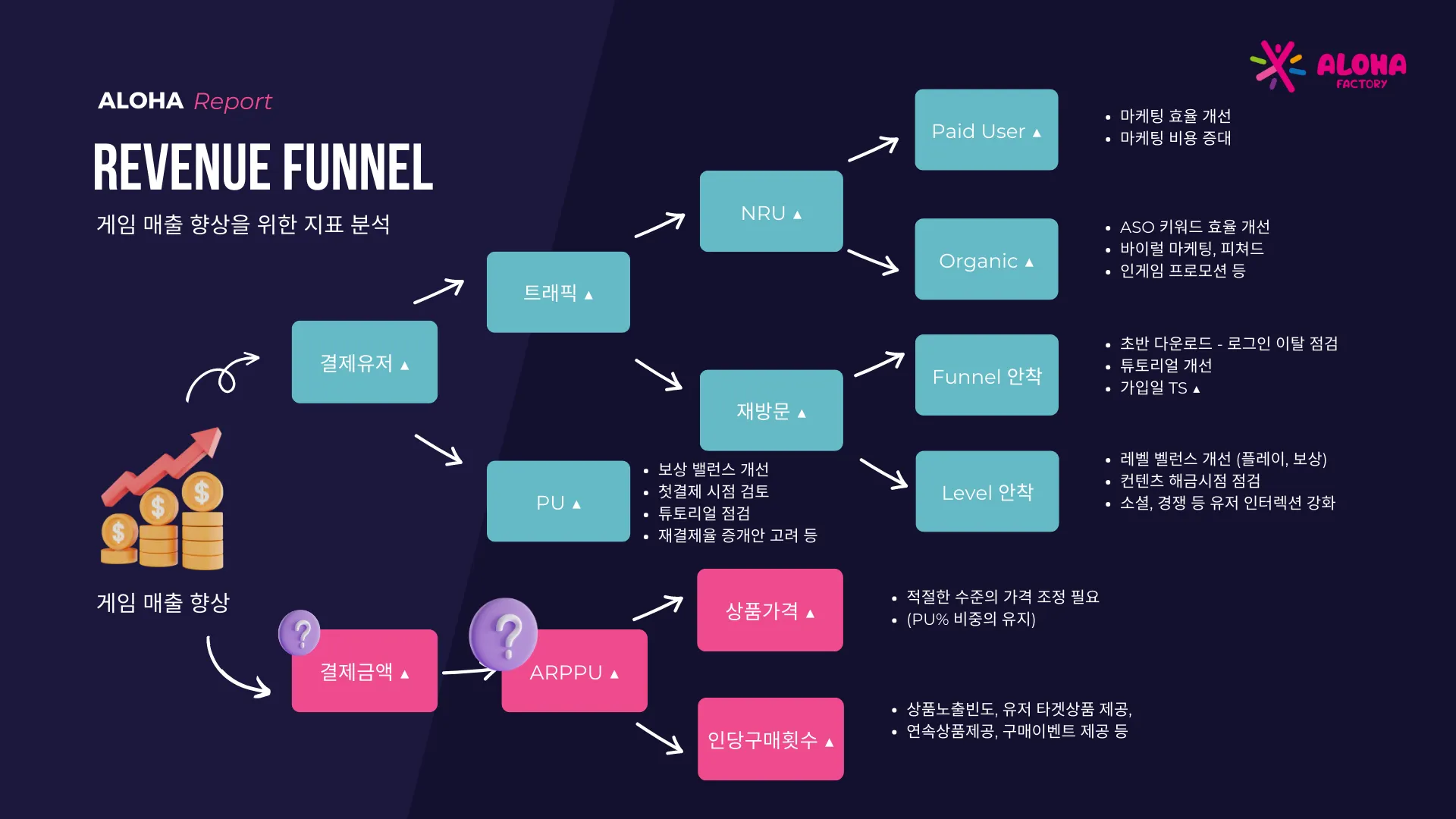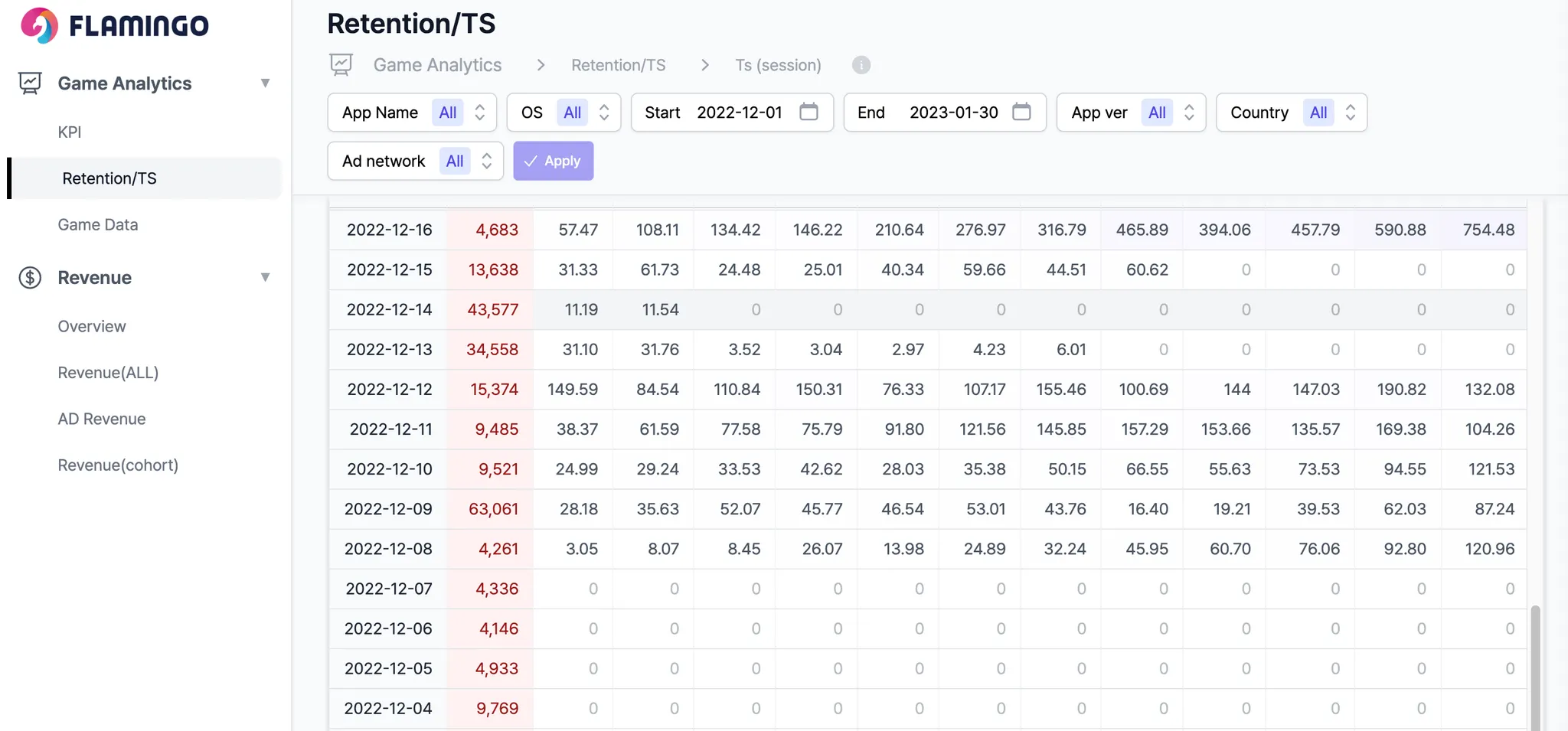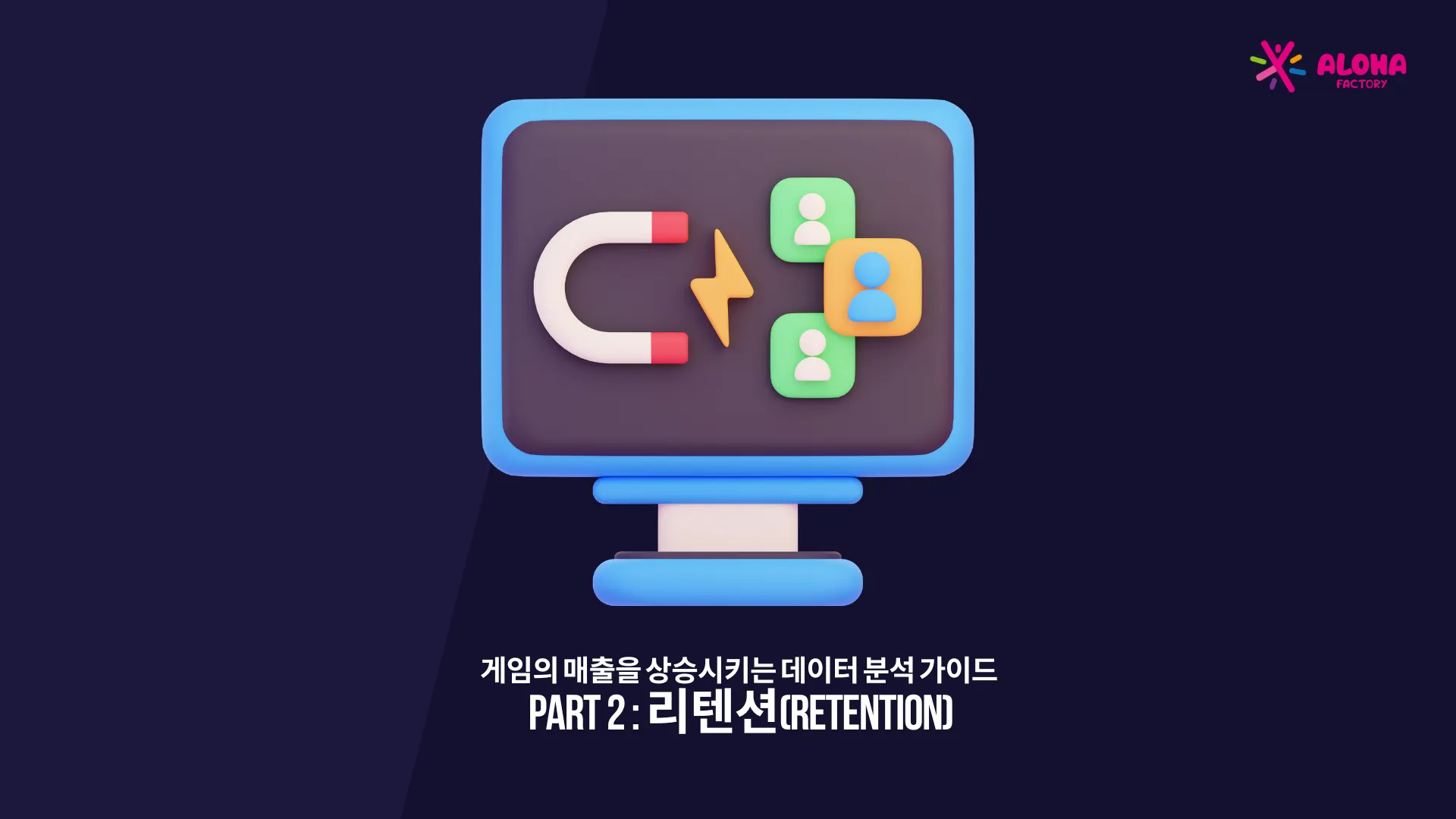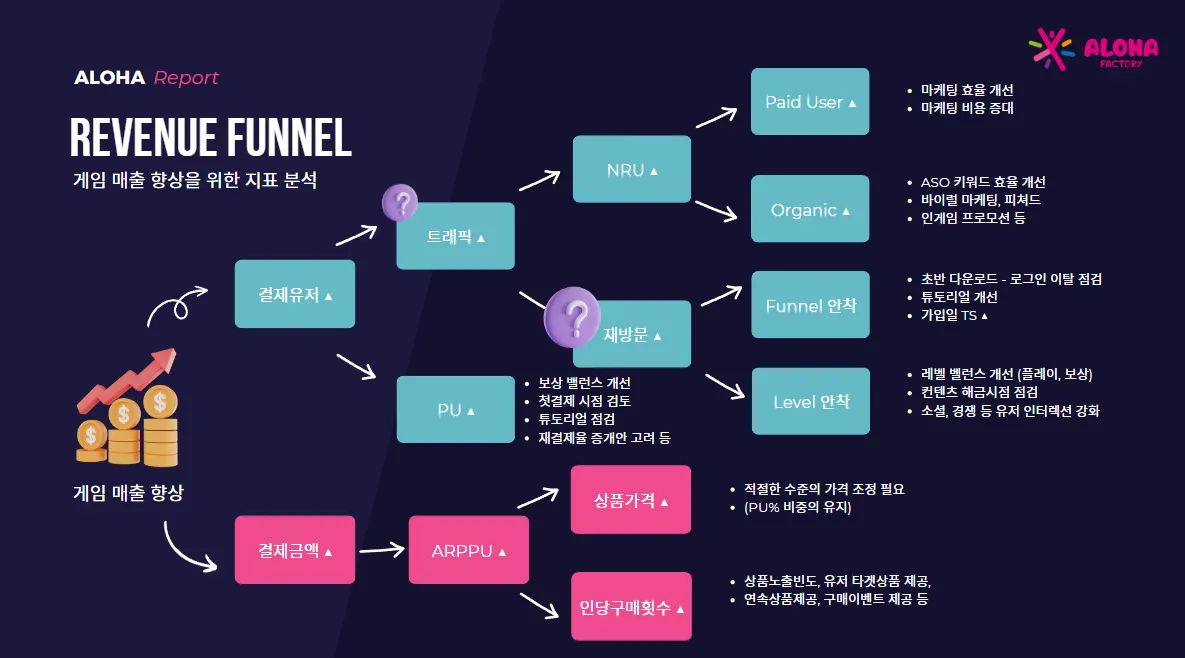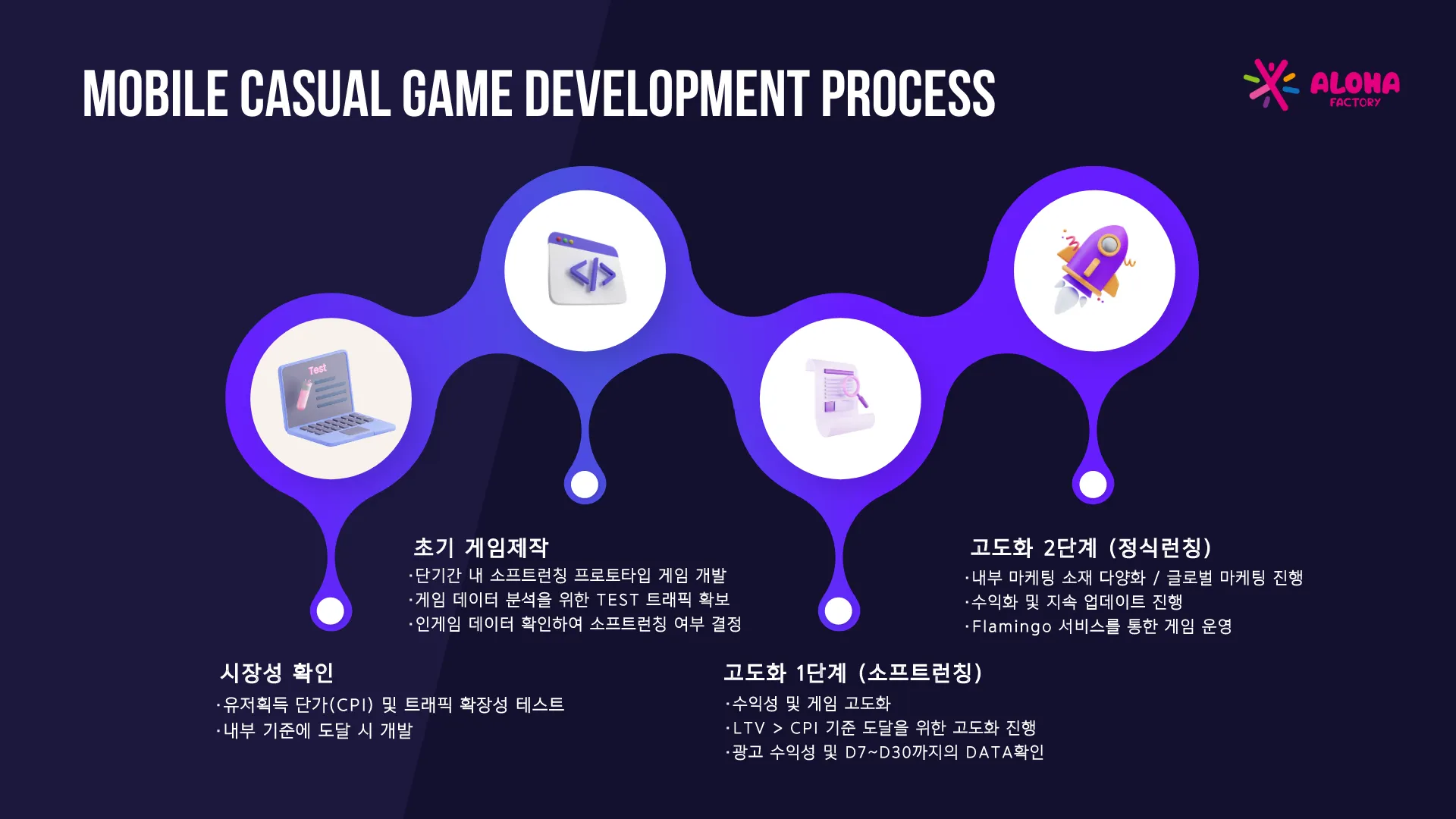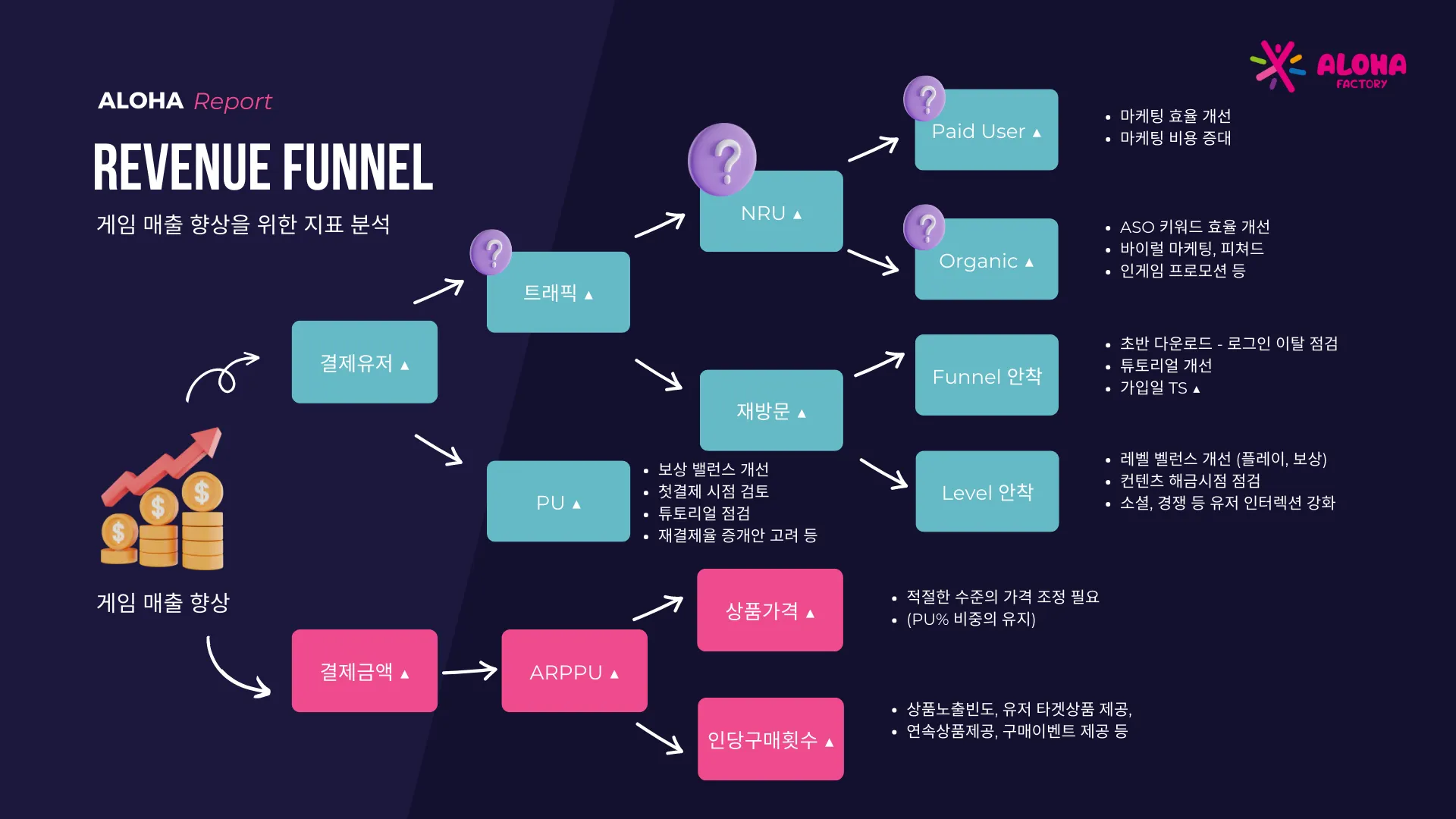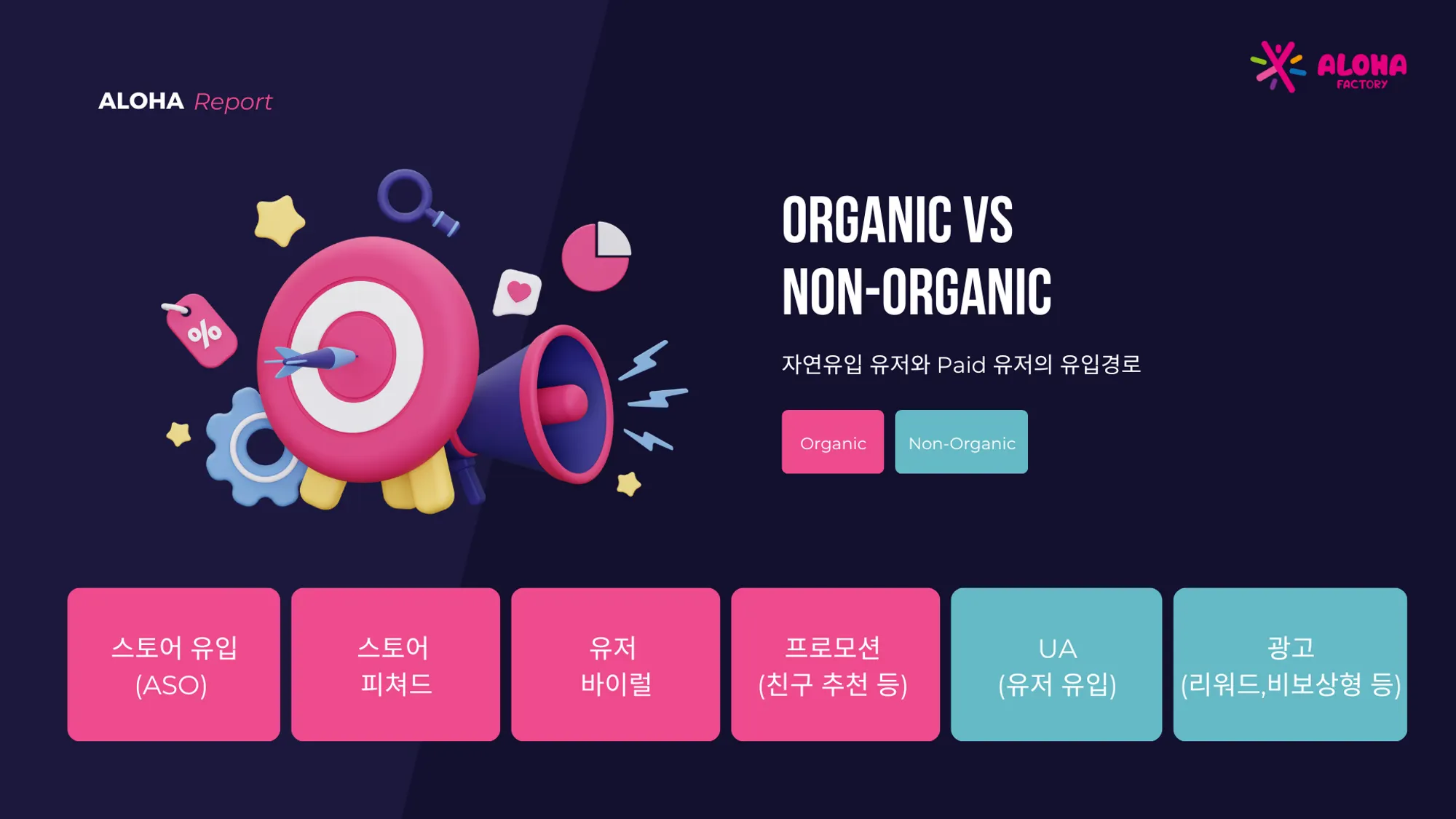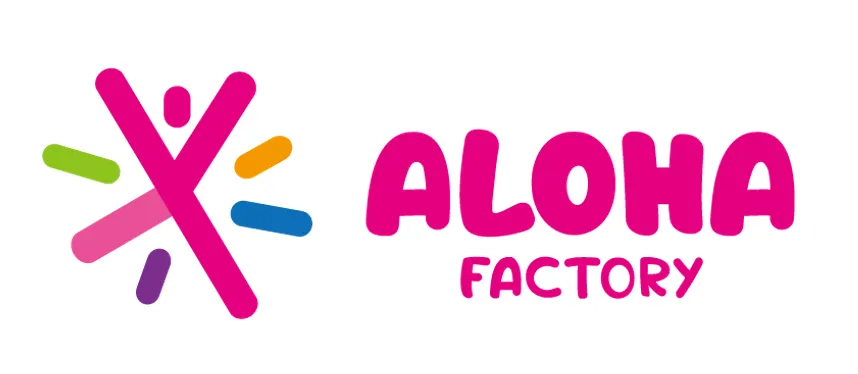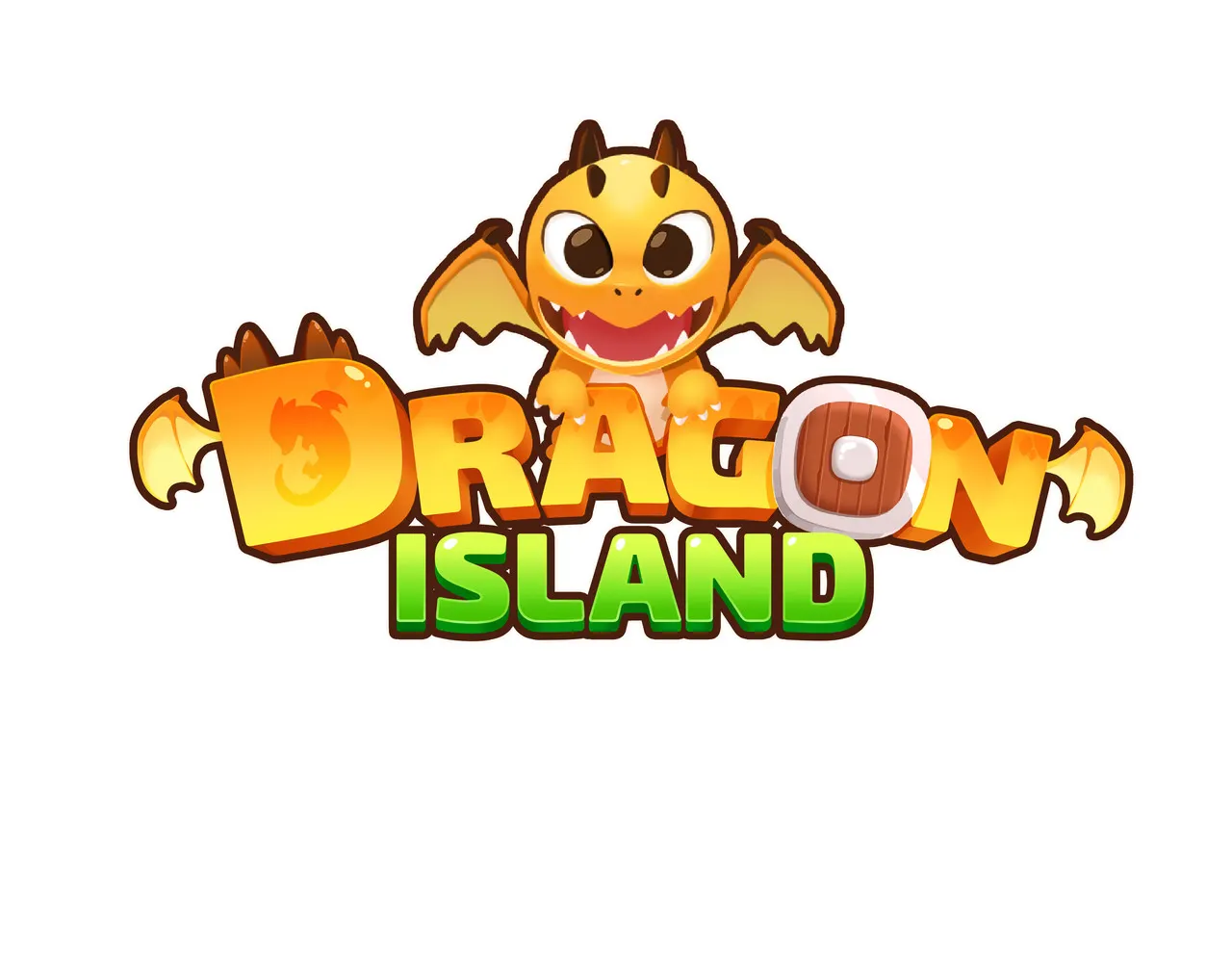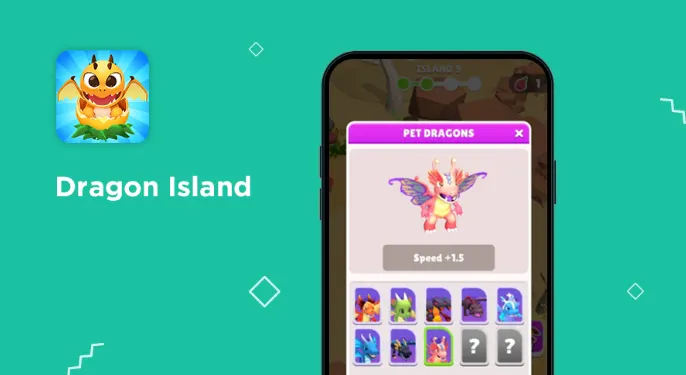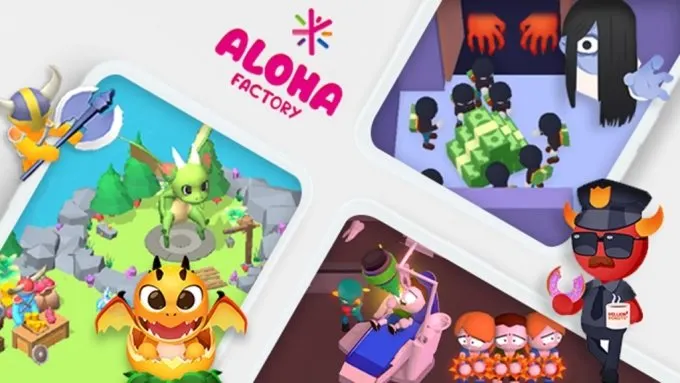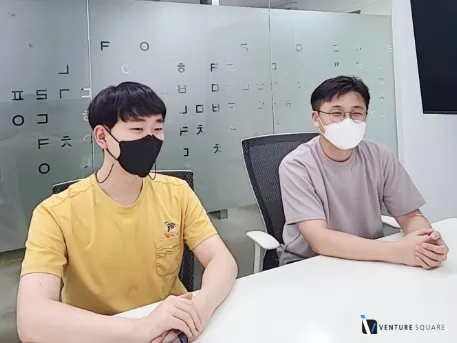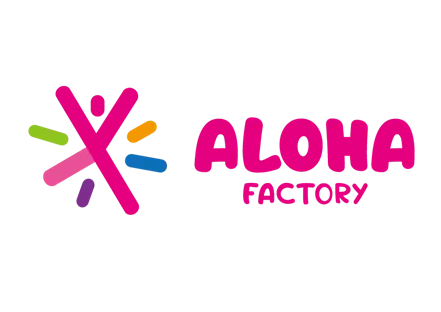Data analytics is an essential part of creating and running a global mobile game. While there's a lot of flair and flair in game creation, not everything can be done by gut instinct and lead to a 100% successful outcome. That's why it's important to look at data, whether it's marketing metrics or problems in specific areas of the in-game, to objectively identify problems and draw insights on how to improve.

Many developers recognize the importance of using data to improve their games, but collecting data and analyzing it in detail to identify improvement points requires a different set of skills. In some cases, a phenomenon is easily understood from a single piece of data, but in most cases, insights are gained by segmenting the data and analyzing it comprehensively with various variables. Due to these barriers to entry, many developers build and launch games based on hunches, or fail to achieve meaningful results even after trying.
To solve these problems and help developers successfully launch their games in the global game market, Aloha Factory provides data analysis reports to developers who are testing with our partners.
The report includes data such as marketing marketability test results, retention, session data, and bounce rate by stage as standard, according to the test stage of the current game, and provides detailed reports on what needs to be improved in the current game through the data of the comparison group.
.png&blockId=c6388b9a-5ad5-400c-8fc3-a123d3d74197)
With the Game Data Report, we provide customized analytics for your game. We segment and synthesize a variety of data to provide you with deeper insights, which you can then draw from. Most importantly, we give you a clear direction for improvement. Based on the data, we clearly present what needs to be improved at each stage and what goals need to be achieved.
Woody, Data Analyst, Aloha Factory
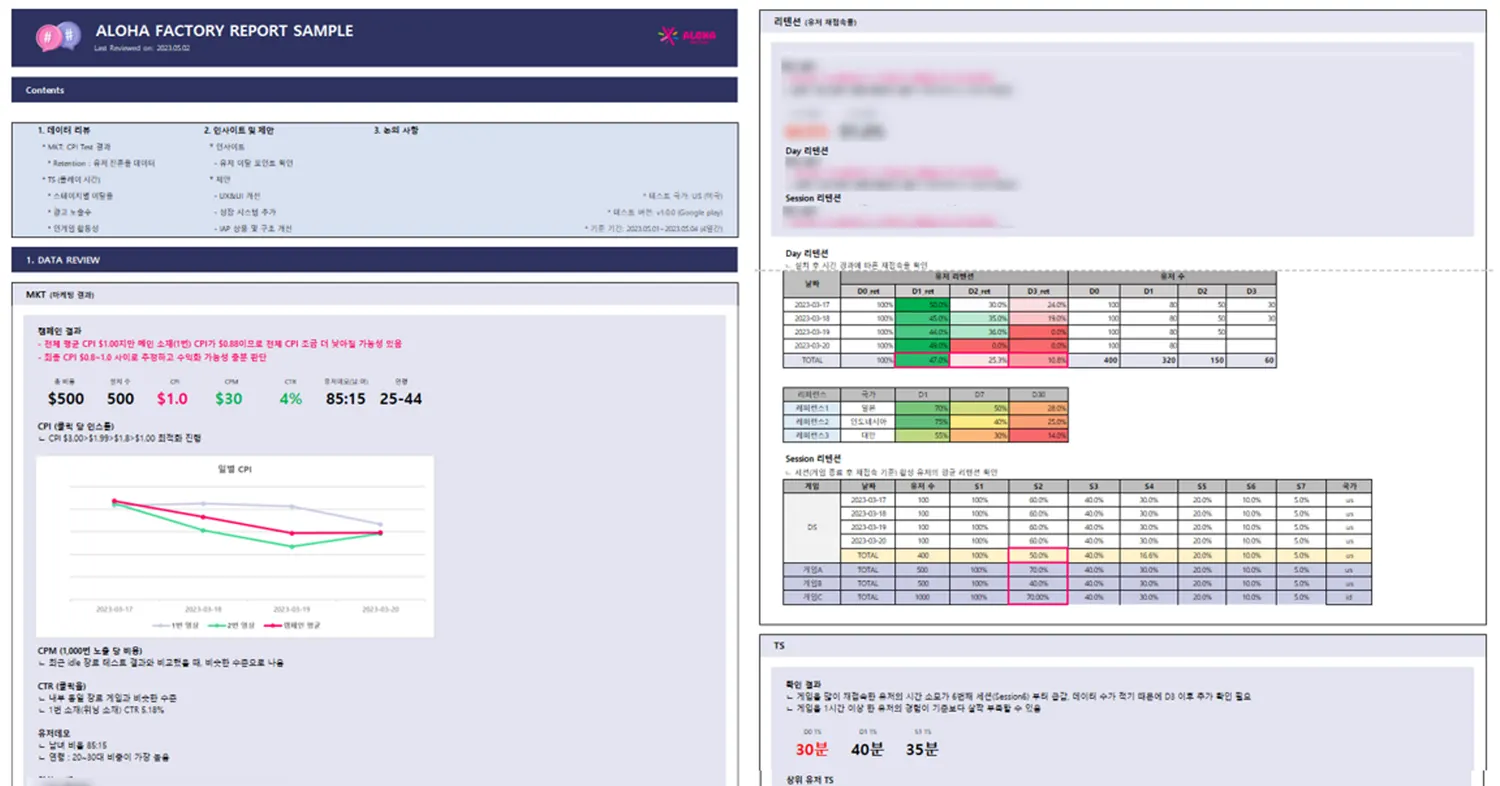
Sample Aloha Factory data report
Basic data such as marketing CPI test results, retention, TS, etc. can be found through the Flamingo service I introduced earlier. In addition, Aloha Factory's data team analyzes more granular data specific to your game and draws insights into what you need to improve in your game.
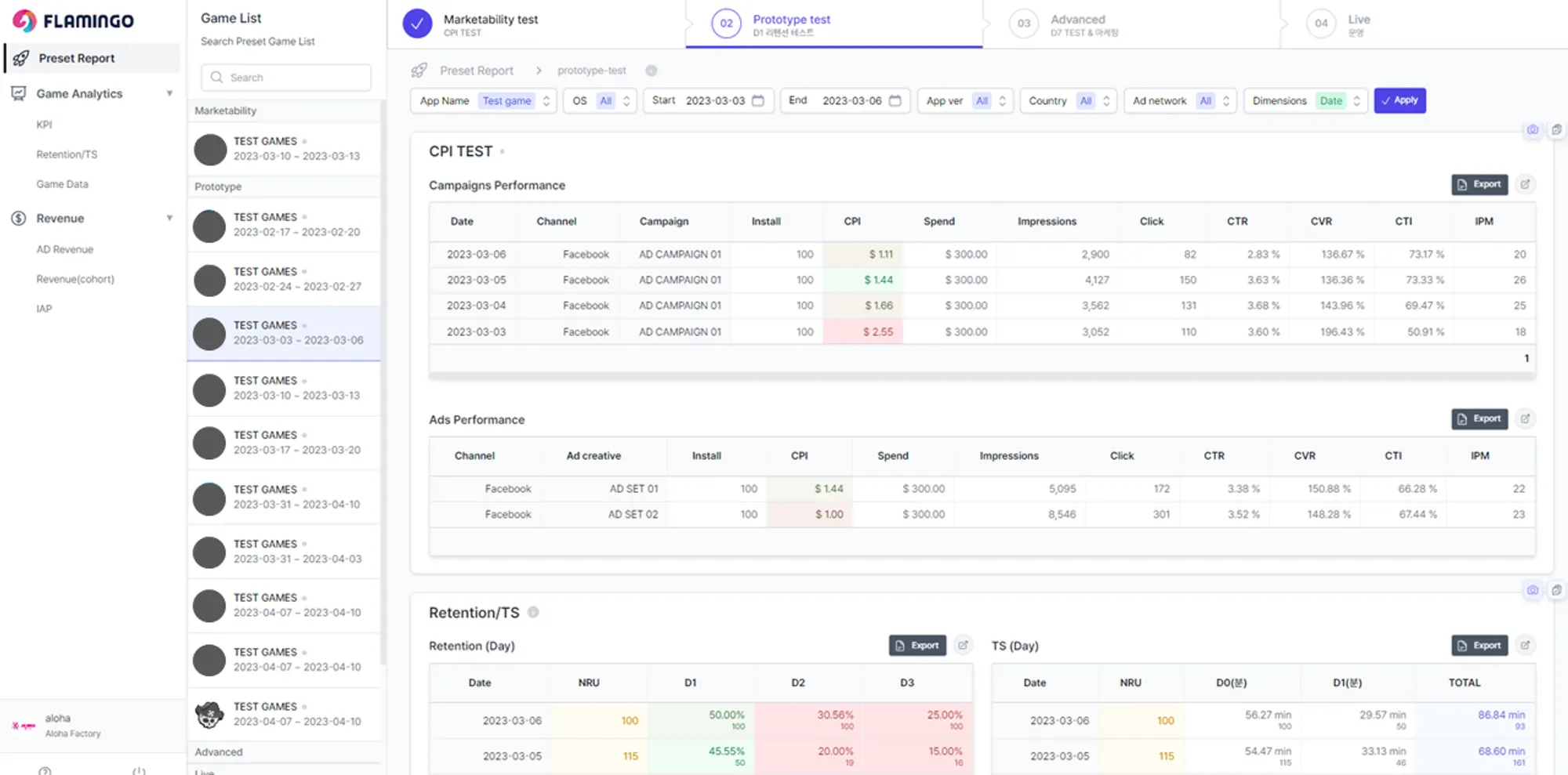
FLAMINGO
How to improve your game's performance with data analytics reports: Aloha Factory Analytics Report
Aloha Factory's game production process is divided into stages: Marketability Test (S1-S2) -> Gameplay and Profitability Test (S3) -> Launching and Scaling Up (S4) -> Operational Stage (S5). Even within this value chain, the game production process is further subdivided. As shown in the process below, we focus on each stage to confirm KPIs, analyze data, and prepare for the next stage. For Aloha Factory's production process case study, please refer to the previous post!
Game Production Process
1.
Implement a game concept prototype for marketability confirmation
2.
Develop a prototype that can show core mechanics and loops in early gameplay
3.
Secure various content for mid-gameplay
4.
Profitability phase
5.
Secure long-term content for continued gameplay
To smoothly carry out these processes, the game data analysis platform developed by Aloha Factory, Flamingo, provides objective data and insights to analyze games in the value chain of game production, marketing, profitability, and operation.
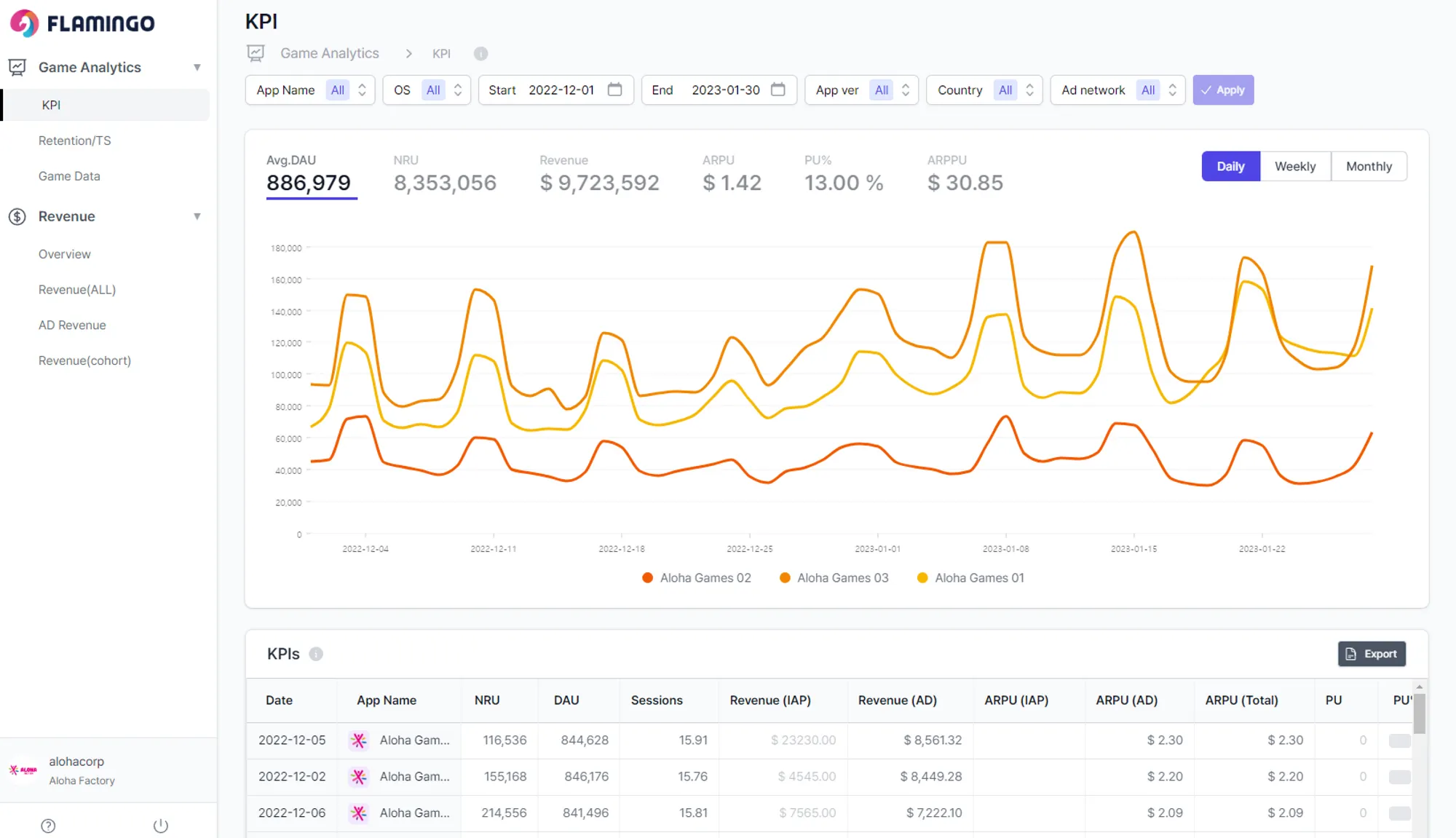
Flamingo's Preset Report
Flamingo provides a preset report that focuses on the necessary indicators according to the game production phase, tailored to Aloha Factory's production process. For example, if our game is in the prototype development phase to confirm the game's early stage success, the most important factors are the funnel in the early stages, including how well users settle in from the tutorial stage to each stage of play, and metrics such as session and day 1 retention.
Rather than providing multiple indicators at once, the Preset Report focuses on checking only the necessary data at each stage and provides insights to improve and increase completeness by comparing the data with that of other games.
1) Data of Marketability Test Stage (S1-S2)
In the marketability test stage, we test how much potential the game concept has in the market and how interesting it is to users in the early stages of production. Therefore, the CPI (Cost Per Install) metric is the most important metric to measure the marketability of the game. We can also check the user's onboarding status, initial stage dropout rates, user activity over time, session-based retention, and TS metrics.
Optimizing game production process with Flamingo's Preset Report
Game development and publishing company Aloha Factory (CEO Lee Ho-jin), a resident company of the CKL Enterprise Support Center of the Korea Creative Content Agency, has been accelerating its efforts to enter the global market through collaboration with small external development teams, along with the expansion of its internal production studio, after attracting investment earlier this year.
Aloha Factory is a developer and publisher of hyper-casual genre games that anyone can easily access and enjoy in a short amount of time. The company has accumulated experience through game services such as "Block Puzzle 1010!" and "Draw Hammer."
"Block Puzzle 1010!" is a hyper-casual puzzle game genre that requires simple rules but strategic gameplay. It has been recognized for its gameplay, being selected for Google's new game feature and signing overseas publishing contracts.
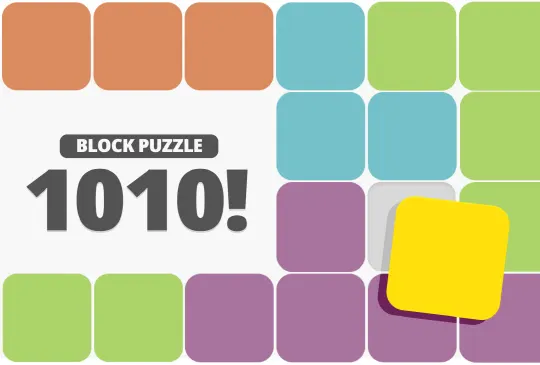
"Draw Hammer" is a hyper-casual arcade game that utilizes a hammer concept that can express drawing mechanics well. It has gained popularity to the point where various review videos have been uploaded to domestic and overseas YouTube channels due to its addictive and unique concept. "Draw Hammer" has also been selected for Google's new game feature and achieved the number one popularity in the Google Arcade game category in overseas countries.
Based on its game production process and publishing experience so far, Aloha Factory recently started Aloha Factory Partners and is supporting the entire process, from idea planning to monetization, for small domestic development companies.
CEO Lee Ho-jin said, "The growth of the hyper-casual market has lowered the barriers to entry for game production and global expansion," and added, "We will not only expand our internal studio but also strengthen our role in supporting the growth of small domestic development companies."
Aloha Factory has recently signed agreements for joint development with small production teams and studios and is conducting intense testing to create global mega-hit games.
Reporter Ko Seung-min ksm@dt.co.kr
Alloha Factory challenges the global market with hyper-casual games.



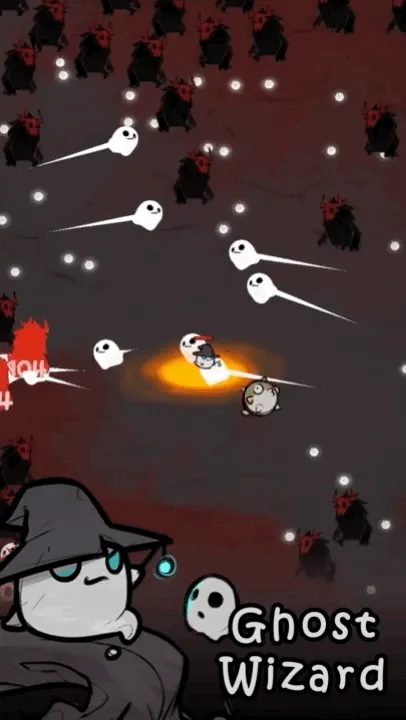

_(12).png&blockId=5a468930-f20f-44a9-b670-4a03c8251548)

